#bookland
Explore tagged Tumblr posts
Text

#the wicked king#cruel prince#queen of nothing#the folk of the air#jude x cardan#cardanandjude#jude duarte#cardan#high king cardan#prince cardan#books#bookish#bookland#book meme#book memes#fantasy#fantasy romance#fantasy books#fantasy novels
37 notes
·
View notes
Text
Bookland
‘NELLA MENTE DI SHERLOCK HOLMES‘ – Cyril Lieron e Benoit Dahan – Mondadori editore Oscar Ink Benoit Dahan foto amazon.it Libri: ‘Nella mente di Sherlock Holmes’, ‘Psyco Investigateur’ Cyril Lieron Foto: ankama-edition.com Questo graphic novel mi ha entusiasmato. Ben costruita la trama: un collega di Watson arriva a Baker Street in stato confusionale e con una parziale perdita di memoria. E’��
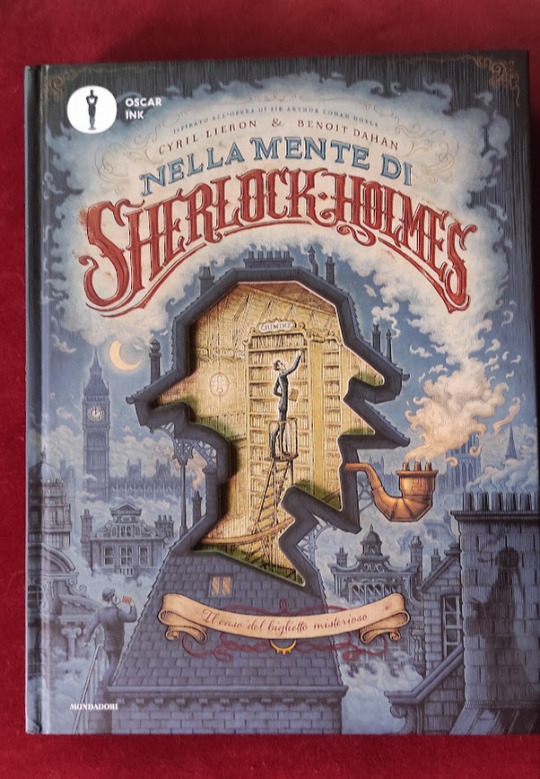
View On WordPress
0 notes
Text
Tâm lý học về sự trì hoãn
Cuốn sách ‘Tâm lý học về sự trì hoãn’ phản ánh thực tế mà rất nhiều người gặp phải hiện nay đó chính là biểu hiện của sự trì hoãn trong công việc. Dù nhận thấy tín hiệu báo động từ chính mình nhưng nhiều người vẫn không thể ngưng trì hoãn để bắt đầu hành động. Trong khi đó, thời gian là một chủ nhân mang đến cơ hội bình đẳng. Mỗi người đều có chính xác cùng một số giờ và phút hàng ngày. Nếu cứ…
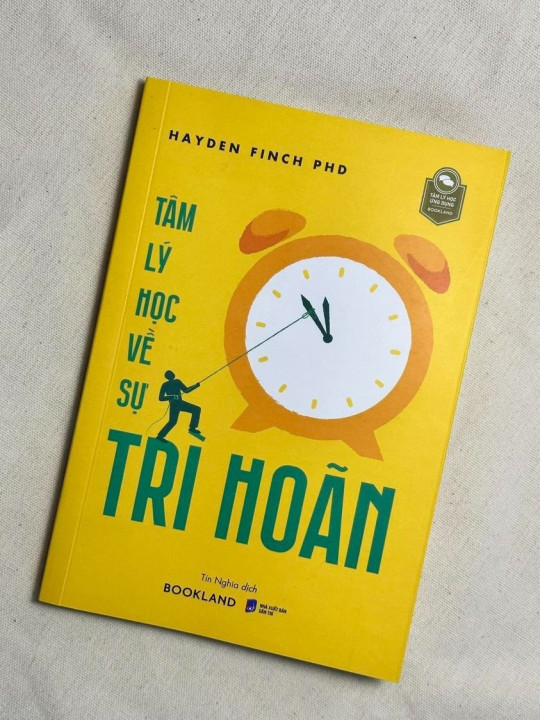
View On WordPress
1 note
·
View note
Text
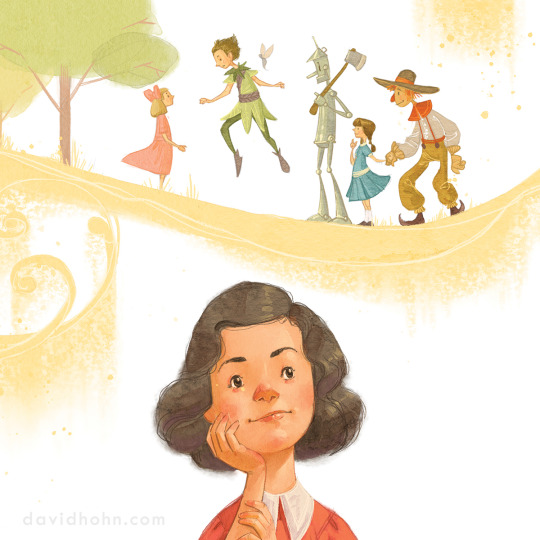
Here's my illustration of (a very young) Beverly Cleary's fan-fiction mashup of Peter Pan, Wizard of Oz and Tom Saywer* (*not pictured)
0 notes
Text

"Everyone called a different question to the parrot," from The Bookshelf for Boys and Girls: Little Journeys into Bookland (1912, for Gary Barwin).
(via @danskjavlarna)
#mermaid#mermaids#sirens#sea sirens#ocean#sea#siren song#folklore#mythology#parrot#gull#seagull#fulmar#seabird#seabirds#aves marinas#birds#waves#cliffs#question#questions#The Bookshelf for Boys and Girls: Little Journeys into Bookland#The Bookshelf for Boys and Girls#Little Journeys into Bookland#illustration#vintage illustration#antique illustration#1912#Gary Barwin#danskjavlarna
3 notes
·
View notes
Note
Congratulations on graduating, Hannah!!! You worked your butt off for this and I hope you get to take some time to celebrate and relax after all that hard work! I've been following you for over 5 years now (holy cow) and I'm so proud of all that you've accomplished so far! 🎉💜🎊
…..five years??? time isn’t real at all. ANYWAY THANK U SM!!!!!! i appreciate u <33333
2 notes
·
View notes
Text
How many library items do I even have out? Let's find out together!
Books ready to return: 2
Books I need to review before returning: 3 (Emily Wilde's Map of the Otherlands; Carrie Soto Is Back; The Lily of Ludgate Hill)
CDs: 1 (1989 Taylor's Version. I'm not ready to hear it yet. but I would like the option to do so without Spotify ads. or streams tbh)
Aaand that makes 13 items left, very good. In absolutely no order because I'm just trying to make sure I know where they all are...
1. Cheap Old Houses - Elizabeth Finkelstein: a beautiful coffee table book, apparently based off an Instagram that I (per usual) have never heard of; I am almost done but have been simply luxuriating in the photos. Currently gazing at it on BookOutlet like "$15 is reasonable for a brand new copy of such a large and 5-star book I definitely have space for actually."
2. Another Good Dog: One Family & 50 Foster Dogs - Cara Sue Achterberg: I got about 60 pages in and am loving it, but it was SO GREAT! that I had to pause and put more middling books in front of it to process; been trying to get back for 2+ weeks. That said, when I finish it...
3. One Hundred Dogs & Counting - Cara Sue Achterberg: ...when I finish the above it'll be on to the next one! (maybe? or maybe I'll want to save this 2nd shot of joy for the future)
4. The Break-Up Tour - Emily Wibberley and Austin S.B.: this has taken WAY too much time and effort to get my damn hands on. And then I didn't even read it fast! I started and then got distracted, and only yesterday managed to get up to the halfway mark. At least the request list has cooled off so I will be able to renew it.
5. The Haunting - Natasha Preston: just stocking up some reliably good YA horror for when I really crave those in the summer. This is literally an I-love-cheap-thrills situation.
6. The Joy of Falling - Lindsay Harrel: a random impulse checkout because the cover was pretty and it's about 2 widowed sisters-in-law training for an ultra-marathon in New Zealand that their late husbands had been planning to do. Thought it might serve as exercise motivation.
7. Malibu Rising - Taylor Jenkins Reid: will this suck me in as fast as Carrie Soto did? I dunno, but this is the one I was originally more interested in, so let's see if this is the year we find out.
8. Heirloom Rooms: Soulful Stories of Home - Erin Napier: Speaking of coffee table books I was looking at on BookOutlet, this popped in the "you may also like wheel" and I saw the library had it instead. "a collection of essays walking us through every room in her home, telling the story of a family’s life, of the days that made their home the place she longs for when she’s away. We learn about when they became the new owners of Erin’s dream house from childhood in downtown Laurel, Mississippi, and explore the beautiful homes of family, friends, and projects past in photographs." YEAH!
9. The Wishing Game - Meg Shaffer: I forgot to re-freeze this hold so it came in at the WORST possible time. I've been waiting on this since January and refuse to be rushed or read it if the timing isn't Perfect, so instead I'm gonna be the jerk who keeps it 3 full weeks just in case I get to it; the waitlist remains at 50+ for 7 copies. My ace in the hole is that certain books are WAY less popular in the county next door, where we can dual-register, and they also have 7 copies but only 14 people waiting.
10. Homeward Bound: Why Women Are Embracing the New Domesticity: nonfiction from 2013 that I've been vaguely meaning to read someday. There's only 1 copy left in the system so I checked it out while I was at that branch, but 99% sure I will NOT be getting to it this round. 20 days til my renewals max out.
12. DVD: Northanger Abbey: the JJ Feild spiral I have been trying to find time for since March is clearly not happening right now because WOW Ryan Gosling spiral time instead. But I can't stop believing until my renewals run out, in 3 weeks.
13. DVD: Third Star: see above. somehow holding out more hope for this one, if only because Survivor has hella reactivated my Male Friendship radar, despite these being extremely different types of men. ...just noticed my renewals on this max out in 4 days, oops.
14. DVD: Ghosts (UK), season 3: I was on a hot watching streak and then I abruptly shifted gears to watch the U.S. version's third season instead (because I was too lazy to fight with our Blu-Ray player that throws a fit every time we tell it to play a DVD instead of its favorite format), and now I don't know how to get back in the groove. But I won't give up until they make me! (9 days from now when my renewals max out)
#library triage#i use 'triage' verrrrry loosely here#when this project is over and I go back to not being a supervisor I am going to clean library checkout HOUSE and dive headfirst into summer#summer books and summer reading specifically. i have work thru at least half of july but it will leave my mind immediately at 4:30pm#so I can dive into Bookland instead of immediately retiring to recovery dozing every day...and then The Break Is In Sight#meanwhile so far this month I have read...one book. not counting the two I read most of in May and finished on the first
0 notes
Text
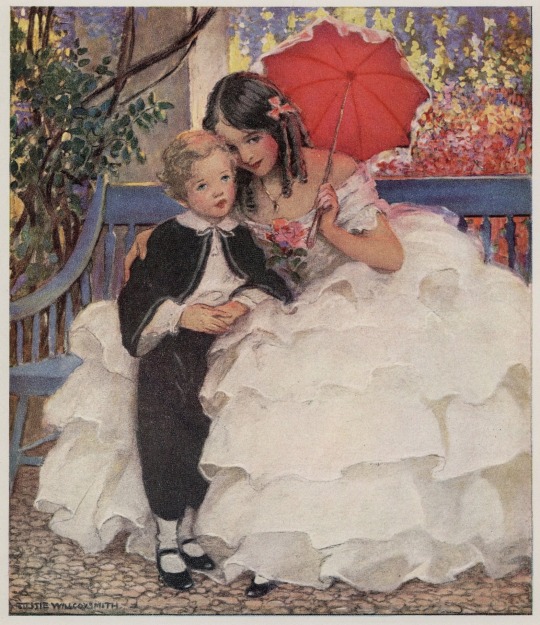
"David Copperfield". Illustration from the book Boys and Girls of Bookland from 1923, written illustrated by Jessie Willcox Smith(1863-1935).
0 notes
Text
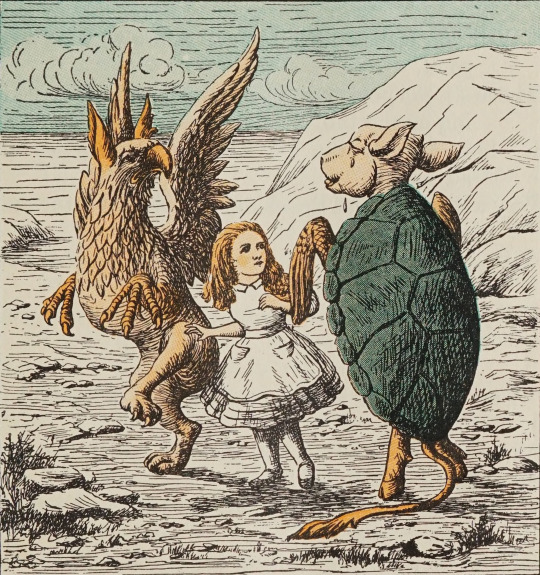
The Gryphon, the Mock Turtle and Alice dance the Lobster Quadrille.
Journeys through bookland. [Alice's Adventures in Wonderland]. 1922.
Internet Archive
426 notes
·
View notes
Text
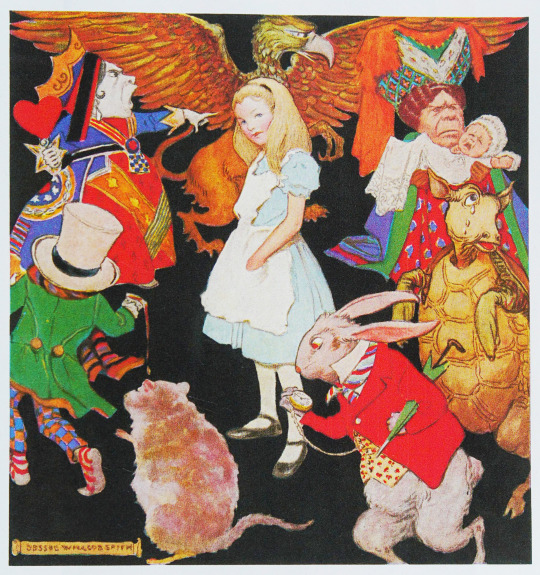
Jessie Willcox Smith (1863-1935), ''Boys and Girls of Bookland'' by Nora Archibald Smith, 1923 Source
#jessie willcox smith#american artists#lewis carroll#alice in wonderland#Nora Archibald Smith#golden age of illustration#vintage illustration#vintage art#Smith was a philly native
316 notes
·
View notes
Text

A MASTERLIST OF ALL THE BOOKS I COULD FIND IN TIM'S BOOKSHELVES
As someone who basically sees Tim Laughlin as my own version of Jesus Christ (I kind of wish I was lying but I have a 'beyond measure' tattoo branding my skin so perhaps I'm entirely serious), I simply needed to know what was on those shelves of his. And this was a hard task to achieve, believe me... but I got much farther than I initially thought I would.
(I've got so much to say about all of these books and how they might string together to create a deeper understanding of Tim as a character but I won't go into it here... maybe in a future post or video essay, who knows).
If you wish to help a girl out and attempt to figure out any of the other books I simply can not crack no matter how I look at the screenshots and mess with the adjustments... here's a folder full of 2k sized screenshots of those shelves.
Before I list the books one by one, I want to make a couple observations:
1) Almost all of the books I was able to pinpoint are non-fiction. The ones that aren't are children's books.
2) Topically, we see an interdisciplinary interest in:
History: from a book on a king in 4BC, to a survey of landholding in England in the 11th century.
Somewhat current historical events: books on World War I and II.
Western Philosophers: specially from the 16th to the 18th century.
Aesthetics: there's at least 2 books on the subject matter, but I couldn't find the second one, sadly.
Spirituality: not only christian/catholic; some of these books touch on Eastern practices such as Buddhism and Hinduism.
Fairy tales / children's books.
Psychology: specially in regards to mysticism and sexuality.
Science and scientific discovery/research.
3) A lot of the history, current events, and spirituality books are autobiographies/memoirs.
4) A lot of books (specially those on sciences and philosophy) tend to be more so anthologies or overviews on a subject matter rather than a book written by one specific author on one very concrete topic.
Overall, this all reflects very well an idea Jonathan Bailey himself expressed in a brilliant interview you can watch here if you haven't yet:
"Tim has buddhist flags in his 1980s flat in San Francisco, he has crystals, he is someone who is always seeking other ways to understand human experience. Which is probably tiring for him. Throughout the decades, he sort of appears as completely different people. At the crux of it there's this extreme grinding, contrasting, aggressive duality between feeling lovable and not feeling lovable. There's such shame in Tim. But it's the push and the pull which keeps him alive.”
This desire to understand human psychology, spirituality, and the ways of the universe through as many diverse lenses as possible, as well as a predilection for non-fiction, expresses very much to me that insatiable thirst for truth that defines his character so strongly.
OKAY, THAT BEING SAID. Here's the list in chronological order of publication.
PS. if you decided to click on any of the following titles it'd definitely not take you to a google drive link of the pdf file where you could download and read these books for yourself. Because that would be illegal and wrong.

Journeys through Bookland by Charles H. Sylvester (1901?) (1922 Edition)
I don't know which specific volume he owns, sorry, I tried my best but the number is not discernible (hell, the title barely is). If anyone wants the download link to these hmu because I'm not about to individually download all 10 right now.
10 volumes of poems, myths, Bible stories, fairy tales, and excerpts from children's novels, as well as a guide to the series. It has been lauded as ‘a new and original plan for reading, applied to the world’s best literature for children.’
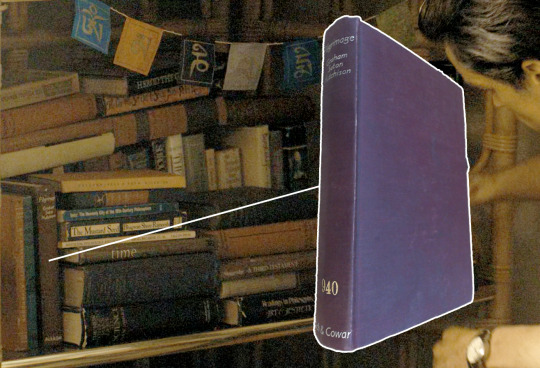
Pilgrimage by Graham Seton Hutchison (1936)
This book provides a view of the battlefields of WW I through the eyes of the average fighting man.
One curious thing about this book is that it's author, a British First World War army officer and military theorist, went on to become a fascist activist later in his life. Straight from Wikipedia:
"Seton Hutchison became a celebrated figure in military circles for his tactical innovations during the First World War but would later become associated with a series of fringe fascist movements which failed to capture much support even by the standards of the far right in Britain in the interbellum period." He made a contribution to First World War fiction with his espionage novel, The W Plan."
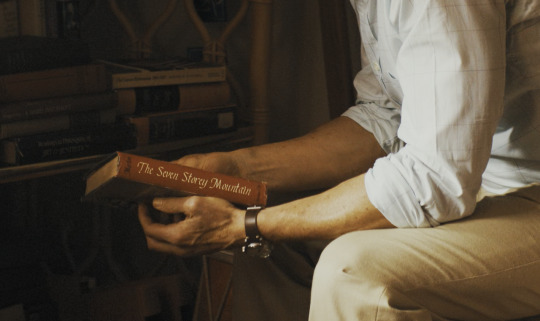
The Seven Storey Mountain by Thomas Merton (1948)
The Seven Storey Mountain tells of the growing restlessness of a brilliant and passionate young man, who at the age of twenty-six, takes vows in one of the most demanding Catholic orders—the Trappist monks. At the Abbey of Gethsemani, "the four walls of my new freedom," Thomas Merton struggles to withdraw from the world, but only after he has fully immersed himself in it. At the abbey, he wrote this extraordinary testament, a unique spiritual autobiography that has been recognized as one of the most influential religious works of our time. Translated into more than twenty languages, it has touched millions of lives.
This book requires no introduction. It's the one he keeps the Fire Island's postcard in and the one we see him re-reading in episode 8 after Hawk brings it to the hospital with him at the end of episode 7.
Just a little detail I noticed:
Apparently he liked the book so much he visited Gethsemani, which was the home of its author all the way up till 1968.

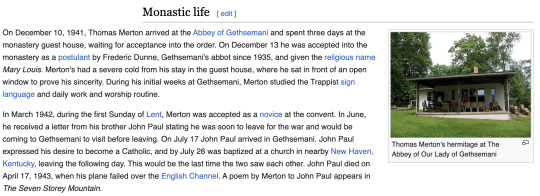
For all we know, he might have even met its author!

Sexual Behavior in the Human Male by Alfred Charles Kinsey, Wardell B. Pomeroy (1948)
When published in 1948 this volume encountered a storm of condemnation and acclaim. It is, however, a milestone on the path toward a scientific approach to the understanding of human sexual behavior. Dr. Alfred C. Kinsey and his fellow researchers sought to accumulate an objective body of facts regarding sex. They employed first hand interviews to gather this data. This volume is based upon histories of approximately 5,300 males which were collected during a fifteen year period. This text describes the methodology, sampling, coding, interviewing, statistical analyses, and then examines factors and sources of sexual outlet.
Yes, Charles Kinsey is indeed behind the Kinsey scale that has done so much for the LGBTQ+ community.

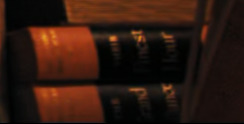
Their Finest Hour (1949), The Grand Alliance (1950), and Closing the Ring (1951) by Winston Churchill
Winston Churchill's six-volume history of the cataclysm that swept the world remains the definitive history of the Second World War. Lucid, dramatic, remarkable both for its breadth and sweep and for its sense of personal involvement, it is universally acknowledged as a magnificent reconstruction and is an enduring, compelling work that led to his being awarded the Nobel Prize for literature in 1953.
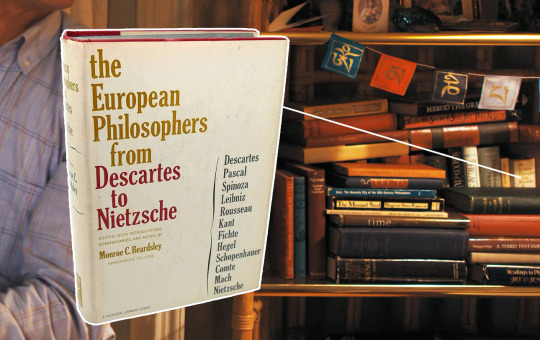
The European Philosophers from Descartes to Nietzsche by Monroe C. Beardsley (1960)
In so far as we reflect upon ourselves and our world, and what we are doing in it, says the editor of this anthology, we are all philosophers. And therefore we are very much concerned with what the twelve men represented in this book--the major philosophers on the Continent of Europe--have to say to us, to help us build our own philosophy, to think things out in our own way. For the issues that we face today are partly determined by the work of thinkers of earlier generations, and no other time is more important to the development of Western thought than is the 250-year period covered by this anthology. Monroe. C. Beardsley, Professor of Philosophy at Swarthmore College, has chosen major works, or large selections from them, by each man, with supplementary passages to amplify or clarify important points. These include: Descartes - Discourse on Method (Descartes), Thoughts (Pascal), The Nature of Evil (Spinoza), The Relation Between Soul and Body (Leibniz), The Social Construct (Rousseau), Critique of Pure Reason (Kant), The Vocation of Man (Fichte), Introducciton to the Philosophy of History (Hegel), The World as Will and Idea (Schopenhauer), A General View of Positivism (Comte), The Analysis of Sensations and the Relation of the Physical to the Psychical (Mach), Beyond Good and Evil (Nietzsche).
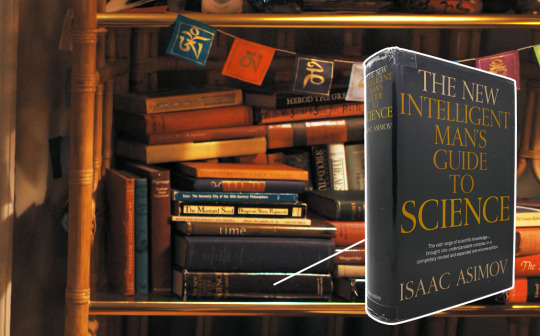
The New Intelligent Man's Guide to Science by Isaac Asimov (1965)
Asimov tells the stories behind the science: the men and women who made the important discoveries and how they did it. Ranging from Galilei, Achimedes, Newton and Einstein, he takes the most complex concepts and explains it in such a way that a first-time reader on the subject feels confident on his/her understanding. Assists today's readers in keeping abreast of all recent discoveries and advances in physics, the biological sciences, astronomy, computer technology, artificial intelligence, robotics, and other sciences.
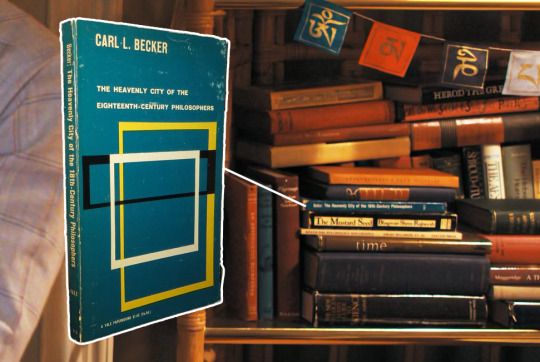
The Heavenly City of the 18th Philosophers by Carl L. Becker (1932) (1962 reprint)
Here a distinguished American historian challenges the belief that the eighteenth century was essentially modern in its temper. In crystalline prose Carl Becker demonstrates that the period commonly described as the Age of Reason was, in fact, very far from that; that Voltaire, Hume, Diderot, and Locke were living in a medieval world, and that these philosophers “demolished the Heavenly City of St. Augustine only to rebuild it with more up-to-date materials.” In a new foreword, Johnson Kent Wright looks at the book’s continuing relevance within the context of current discussion about the Enlightenment.
I find the particular choice of adding this book very curious and on brand, since it explores the idea that philosophers of the Enlightenment very much resembled religious dogma/faith in their structure and purpose. Just... A+ of the props department to not just add any kind of book on philosophy anthology.

Herod The Great by Michael Grant (1971)
The Herod of popular tradition is the tyrannical King of Judaea who ordered the Massacre of the Innocents and died a terrible death in 4 BC as the judgment of God. But this biography paints a much more complex picture of this contemporary of Mark Antony, Cleopatra, and the Emperor Augustus. Herod devoted his life to the task of keeping the Jews prosperous and racially intact. To judge by the two disastrous Jewish rebellions that occurred within a hundred and fifty years of his death -- those the Jews called the First and Second Roman Wars -- he was not, in the long run, completely successful. For forty years Herod walked the most precarious of political tightropes. For he had to be enough of a Jew to retain control of his Jewish subjects, and enough of a pro-Roman to preserve the confidence of Rome, within whose territory his kingdom fell. For more than a quarter of a century he was one of the chief bulwarks of Augustus' empire in the east. He made Judaea a large and prosperous country. He founded cities and built public works on a scale never seen before: of these, recently excavated Masada is a spectacular example. And he did all this in spite of a continuous undercurrent of protest and underground resistance. The numerous illustrations presents portraits and coins, buildings and articles of everyday use, landscapes and fortresses, and subsequent generations' interpretations of the more famous events, actual and mythical, of Herod's career.
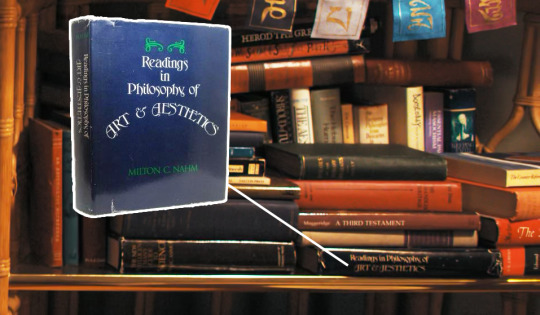
Readings in the Philosophy of Art and Aesthetics compiled by Milton Charles Nahm (1975)
A college level comprehensive anthology of essays written on the arts and the field of aesthetic philosophy.

The Mustard Seed: Discourses on the Sayings of Jesus Taken from the Gospel According to Thomas by Bhagwan Shree Rajneesh (1975)
This timely book explores the wisdom of the Gnostic Jesus, who challenges our preconceptions about the world and ourselves. Based on the Gospel of Thomas, the book recounts the missing years in Jesus’ life and his time in Egypt and India, learning from Egyptian secret societies, then Buddhist schools, then Hindu Vedanta. Each of Jesus' original sayings is the "seed" for a chapter of the book; each examines one aspect of life — birth, death, love, fear, anger, and more — counterpointed by Osho’s penetrating comments and responses to questions from his audience.
(You don't know how fulfilling it was to find some of these books and just sit there like "oh my god, yessss, he'd SO read that".)
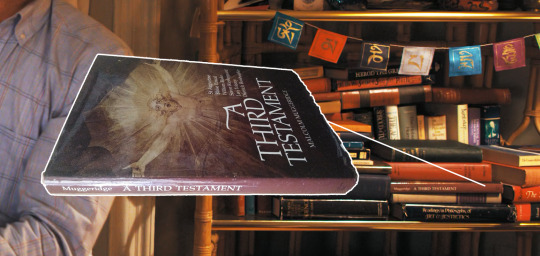
A Third Testament by Malcolm Muggeridge (1976)
A modern pilgrim explores the spiritual wanderings of Augustine, Pascal, Blake, Kierkegaard, Dostoevsky, Tolstoy, and Bonhoeffer. A Third Testament brings to life seven men whose names are familiar enough, but whose iconoclastic spiritual wanderings make for unforgettable reading. Muggeridge's concise biographies are an accessible and manageable introduction to these spiritual giants who carried on the testament to the reality of God begun in the Old and New Testaments. - St. Augustine, a headstrong young hedonist and speechwriter who turned his back on money and prestige in order to serve Christ - Blaise Pascal, a brilliant mathematician who pursued scientific knowledge but warned people against thinking they could live without God - William Blake, a magnificent artist-poet who pled passionately for the life of the spirit and warned of the blight that materialism would usher in - Soren Kierkegaard, a renegade philosopher who spent most of his life at odds with the church, and insisted that every person must find his own way to God - Fyodor Dostoevsky, a debt-ridden writer and sometime prisoner who found, in the midst of squalor and political turmoil, the still small voice of God - Leo Tolstoy, a grand old novelist who swung between idealism and depression, loneliness and fame and a duel awareness of his sinfulness and God s grace - Dietrich Bonhoeffer, a pastor whose writings and agonized involvement in a plot to kill Hitler cost him his life, but continue to inspire millions
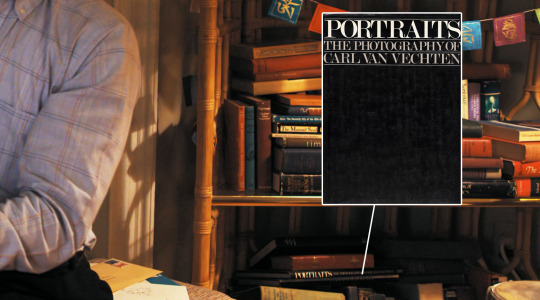
Portraits: The photography of Carl Van Vechten (1978)
Can't find a file but you can borrow it from archive.com in the link provided.
During his career as a photographer, Carl Van Vechten’s subjects, many of whom were his friends and social acquaintances, included dancers, actors, writers, artists, activists, singers, costumiers, photographers, social critics, educators, journalists, and aesthetes. [...] As a promoter of literary talent and a critic of dance, theater, and opera, Carl Van Vechten was as interested in the cultural margin as he was in the day’s most acclaimed and successful people. His diverse subjects give a sense of both Carl Van Vechten’s interests and his considerable role in defining the cultural landscape of the twentieth century; among his many sitters one finds the leading lights of the Harlem Renaissance, the premier actors and writers of the American stage, the world’s greatest opera stars and ballerinas, the most important and influential writers of the day, among many others.
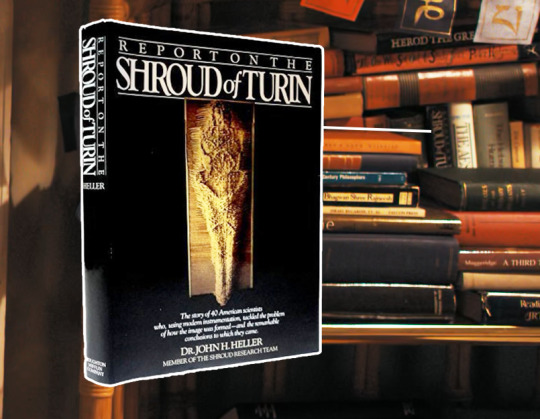
Report of the Shroud of Turin by John H Heller (1983)
Heller, while a man of science, was nevertheless a devout man (Southern Baptist). He viewed his task concerning The Shroud with great scepticism; there have been far too many hoaxes in the world of religion. The book describes in great detail the events leading up to the team's conviction that the Shroud was genuine; last - not least - being Heller and Adler's verification of "heme" (blood) and the inexplicable "burned image" of the crucified man. Although carbon dating indicates that the image is not 2000 years old and that the cloth is from the Middle Ages, there is not enough evidence to disprove Heller's assertion that the Shroud is indeed genuine.
Context for those who may not know (though I doubt it's necessary): The shroud of Turin "is a length of linen cloth that bears a faint image of the front and back of a man. It has been venerated for centuries, especially by members of the Catholic Church, as the actual burial shroud used to wrap the body of Jesus of Nazareth after his crucifixion, and upon which Jesus's bodily image is miraculously imprinted."
It is a very controversial subject matter and I definitely don't know that from going to an Opus Dei school since the day I was born till the day I graduated high school.

Mysticism, Psychology and Oedipus by Israel Regardie (1985)
I've tried my hardest but despite many Israel Regardie books being on the world wide web, I can't find a copy of this specific one.
Mysticism, Psychology and Oedipus, from the Small Gems series is one of these mysterious alchemys which Regardie and Spiegelman crafted for the serious student of mysticism. Mysticism, Psychology and Oedipus by Dr. Israel Regardie and his friend, world renowned Jungian Psychologist, J. Marvin Spiegelman, Ph.D. was created to reach the serious student at the intersecting paths of magic, mysticism and psychology. While each area of study overlaps they also maintain their own individual paths of truth. One of Regardie’s greatest gifts was his rare ability to combine these difficult and diverse subjects and make them understandable.
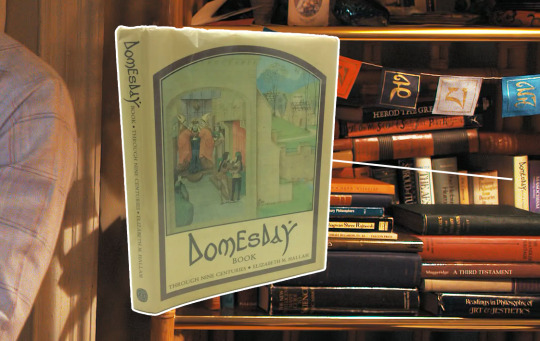
Domesday Book Through Nine Centuries by Elizabeth M. Hallam (1986)
In 1086 a great survey of landholding in England was carried out on the orders of William the Conqueror, and its results were recorded in the two volumes, which, within less than a century, were to acquire the name of Domesday, or the Book of Judgment 'because its decisions, like those of the last Judgment, are unalterable'. This detailed survey of the kingdom, unprecedented at that time in its scope, gives us an extraordinarily vivid impression of the life of the eleventh century.
The following two are a fuck up on the props department part because they were published after 1987 but we'll forgive them because they were not expecting for me to do all this to figure out the titles of these books, I'm sure:
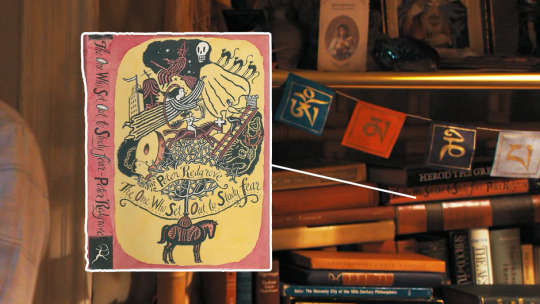
The One Who Set Out to Study Fear by Peter Redgrove (1989)
This book barely exists physically, rest assured it does not exist online... LOL.
The author of The Wise Wound presents here a re-telling of Grimm's famous fairy tales, written in a manner and spirit more suited to the present day. Each story is rooted in the original, but cast in an energetic style that is both disrespectful and humorous.
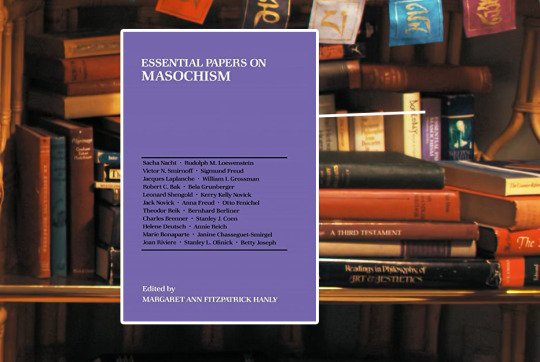
Essential Papers on Masochism by Margaret Ann Fitzpatrick Hanly (1995)
The contested psychoanalytic concept of masochism has served to open up pathways into less-explored regions of the human mind and behavior. Here, rituals of pain and sexual abusiveness prevail, and sometimes gruesome details of unconscious fantasies are constructed out of psychological pain, desperate need, and sexually excited, self- destructive violence. In this significant addition to the "Essential Papers in Psychoanalysis" series, Margaret Ann Fitzpatrick Hanly presents an anthology of the most outstanding writings in the psychoanalytic study of masochism. In bringing these essays together, Dr. Fitzpatrick Hanly expertly combines classic and contemporary theories by the most respected scholars in the field to create a varied and integrated volume. This collection features papers by S. Nacht, R. Loewenstein, Victor Smirnoff, Sigmund Freud, Jacques Laplanche, Robert Bak, Leonard Shengold, K. Novick, J. Novick, S. Coen, Margaret Brenman, Esther Menaker, S. Lorand, M. Balint, Bernhard Berliner, Charles Brenner, Helene Deutsch, Annie Reich, Marie Bonaparte, Jessica Benjamin, S.L. Olinick, Arnold Modell, Betty Joseph, and Janine Chasseguet-Smirgel.
Let's not forget another book we know has been present in his shelves at some point:

Look Homeward, Angel by Thomas Wolfe (1929)
It is Wolfe's first novel, and is considered a highly autobiographical American coming-of-age story. The character of Eugene Gant is generally believed to be a depiction of Wolfe himself. The novel briefly recounts Eugene's father's early life, but primarily covers the span of time from Eugene's birth in 1900 to his definitive departure from home at the age of 19. The setting is a fictionalization of his home town of Asheville, North Carolina, called Altamont in the novel.
And Ron Nyswaner mentioned in a podcast (might be this one? I'm not sure) that he scrapped from the script a line where Tim recommends this poem at some point:
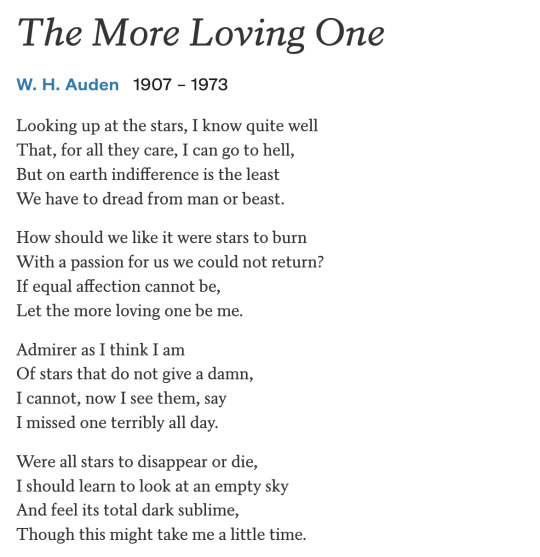
He specially emphasized the line "If equal affection cannot be, Let the more loving one be me".
And lastly, if anyone wanted to know:
His copy of the bible is the Revised Standard Version by Thomas Nelson from either 1952 or 1953.
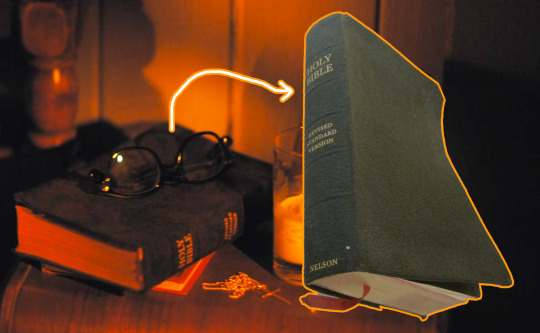
Because why the hell not figure out what specific translation of the holy bible a fictional character was basing his beliefs on — as if the set designers cared nearly as much as I do.
#fellow travelers#fellow travelers meta#tim laughlin#fellowtravelersedit#i know it doesnt precisely fit the tag but hey.. theres a gif right there#this is such a jobless thread... but i AM jobless
151 notes
·
View notes
Text






Whispers From Hell: An Anthology Of Horror & The Supernatural
A collection of the haunted & horrific tales by horror author & A.I.A. Member Edward V'Kanty. "Whispers From Hell" has featured on The Night Show, Cyndiland.com, Liss In Bookland, Joey Pinkney Book Reviews, Manic Readers, & many others...
Whispers From Hell
Can Melvin defeat the evil that has become so obsessed with him, or will he succumb to the Whispers From Hell? Kylie's Reality
When a displaced soul becomes obsessed with her, can Julia Daniels find a way to help her without having to submit to Kylie's Reality? Brette's Discovery
Can anything stop a new predator from devouring a small town, or will all of humanity be lost to Brette's Discovery? A Requiem For The Damned
Will Evan follow the royal guardian of a secluded village and be granted access to youth eternal, or will he risk his own life and that of his wife's to provide A Requiem For The Damned? Princesses
At the final moment, when she has one last opportunity to save herself, will this lonely woman choose the light or become a feast for the Princesses?
Night Terrors
Caught in the midst of a battle between demons and displaced souls, can Lydia and her neighbors prove themselves superior or will they be lost within their own Night Terrors? Borrowed Time
Can a mysterious girl teach Brent to forgive, before he runs out of Borrowed Time? Into The Realm Of The Lunatic
Dr. Shauna Adams becomes overwhelmed in a world where reality converges with memories, dreams, and fantasies, but can she find the truth, before she delves too deep Into The Realm Of The Lunatic? For Everything, A Season
When Fate pays her a visit, will Elmira Trumble continue to fight or can she accept that there is For Everything, A Season?
Whispers From Hell: An Anthology Of Horror & The Supernatural is available on:
Kindle Paperback Nook
#horror#scream queens#halloween#fiction#books#vampires#ghosts#angels and demons#monsters#scary stories#short story#short stories#quick read#reading#books and reading#bookblr#currently reading#book recommendations#booklr#bookworm#book review
8 notes
·
View notes
Text

Jessie Willcox Smith(1863-1935)
"Alice in Wonderland". Illustration from the book Boys and Girls of Bookland 1923, written by Nora Archibald Smith.
45 notes
·
View notes
Text
This is for the really small pool of popcross studios fans who have read Catcher in the Rye-
Am I the only one who sees early chapters Holden as a straight, 16 year old Benny Sharp variant? Like the humor, the tone of his voice in writing, the phrases he uses, it all strongly reminds me of our dear Sharp. (On top of all that, he mentioned he had gray hairs at 16, and I can totally see Benny having grayed as a teen)
This connection might be influenced by the fact that I'm listening to the audio book on YouTube (Channel: Bookland), and the reader's tone mixed with the new York accent sounds really similar to Benny's lmao
#popcross studios#benny sharp#holden caulfield#the catcher in the rye#multiverse tales#popcrossstudios#Christian Pearson
9 notes
·
View notes
Text

— Trees That Wheep: Taehyung
"What he lacked in aggression he made up for in heart."
series masterlist
Taglist: @greezenini @adventures-in-bookland @kthstrawberryshortcake-main @zae007live @jimin-neverout @nikkiordonez12 @canarystwin @yamekomz @chimthicc @michiiedreamer @amorieus @mima795 @yunki-yunki-yunki
#bts moodboard#ttw moodboard#taehyung moodboard#bts fanfiction#bts fanfic#taehyung fanfic#taehyung#kim taehyung
17 notes
·
View notes
Text

“Bob Cratchit and Tiny Tim” the story of A Christmas Carol. Illustration from the book Boys and Girls of Bookland from 1923, written illustrated by Jessie Willcox Smith(1863-1935).
0 notes